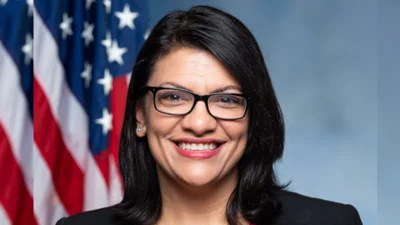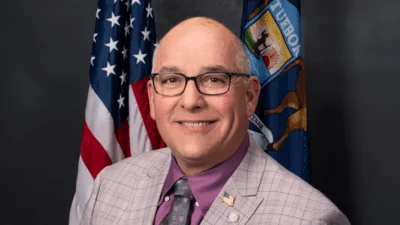University of Detroit Mercy issued the following announcement on June 11
CHP professor volunteers to test senior citizens for COVID-19
Mary Serowoky enjoys making a difference in the community as the lead nurse practitioner in Henry Ford Health System’s school-based and community health program. When the COVID-19 crisis forced her program to temporarily shut down, she still wanted to help people.
So when the Global Health Initiative at Henry Ford and the Detroit Health Department made a call for volunteers to go into nursing homes, senior housing and adult foster care facilities to test for COVID-19, she signed up.
“My work has always been in the community setting,” said Serowoky, an associate clinical professor in the Family Nurse Practitioner program at University of Detroit Mercy. “My work has always been with vulnerable populations. I’m not an ICU nurse so I can’t go to the frontline in that way. But I do have lots of community and public health skills and I felt I needed to give back in some way, and this was something I could really do.
"I didn’t want to see this important work not have enough people to do it. I probably could have stayed home because I have enough work, but as a nurse, you want to figure out a way to be of service.”
Serowoky has been volunteering with the group through several phases. The first phase was testing residents and staff for COVID-19.
“We were able to meet vulnerable populations in the community, who should not be going out, and who are at high risk for having the infection spread in those environments,” Serowoky said. “We started expanding some of that testing to staff and provided resources to staff regarding good section control practices.
“It’s gratifying to see the good work that all the staff are doing, it makes me proud to be a healthcare provider to know people are in it for the right reasons. And they’re doing the right thing to provide comfort, care and healing in any way that we can.”
The second phase was tracing the infections to see how they were spread.
“We go to residences and determine if they tested positive, did they have symptoms, but we’ve been seeing a fair amount of folks that have tested positive and not been symptomatic or minimally symptomatic,” Serowoky said. “Then also seeing if we can back track and find out who they may have been in contact with before they knew that they were ill to have potentially infected that person or that’s who they received the infection from.”
Another important aspect of the program was providing resources to help some of the seniors. Things like getting groceries or medications delivered, and even seemingly simple things like taking time to talk.
“Helping people feel like they’re not alone and not forgotten, and letting them know we are concerned and worried for them,” Serowoky said. “The residents, when we show up, their eyes kind of light up. It’s another face to talk to and for them, it’s a way to see how things are because they can’t get out, so they can’t see what’s going on. All they know is they are stuck in their room, they can’t go to the common dining room and they don’t have the normal activities. Socialization is one thing a lot of them crave and to know that they matter and haven’t been forgotten about.”
Serowoky says under ideal conditions, many of the things they are doing would have been in place a long time ago. But it’s still having an impact.
“We’re playing a lot of catch-up right now, but I also believe that if we have enough folks doing this that we might be able to get to some sort of normal, because this is going to be with us for a long time,” Serowoky said. “It might not be to this level of chaos and concern, but we have to start looking at our communities and our environments differently so that we don’t have the chaos and despair, and a lot of death and sadness. This will help us get back to our work and our lives.”
Serowoky graduated from Mercy College in 1981 and earned her master’s degree in FNP from Detroit Mercy in 2000, so she’s a firm believer in practicing the University’s mission.
“It’s about taking care of vulnerable persons in our community,” Serowoky said. “It’s attending to their emotional and spiritual needs as well as their physical and other needs. It’s being a person of the city, being in the city and a person for others.”
Serowoky is not only making a difference through her volunteer work, but also feels it will help her as an educator at Detroit Mercy.
“I’ve had the chance to interact with folks from the Centers for Disease Control and Prevention who came to Detroit,” Serowoky said. “They’re working on curriculum with the Detroit Health Department and other partners to be able to make sure we’re infusing these concepts in nursing, PA and all of these areas. It’s a curriculum development opportunity.”
Original source can be found here.

Source: University of Detroit Mercy




 Alerts Sign-up
Alerts Sign-up